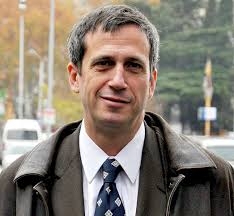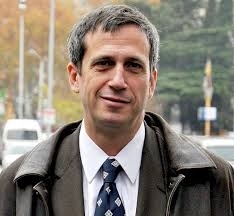Lincoln Mitchell: Garibashvili’s Resignation No Surprise
In the Georgia Analysis, a bi-monthly analysis of political and other major developments in Georgia by international political analyst Lincoln Mitchell, the scholar says the resignation of of Georgian Prime minister Irakli Garibashvili was to be expected.
“Garibashvili was appointed Prime Minister after Ivanishvili resigned, but his leadership was always heavily dependent upon the good will of his predecessor. Garibashvili was a protege of Ivanishvili, but he remained dependent upon him for political support as well,” the expert said.
“Garibashvili’s record as Prime Minister was decidedly mixed. He led Georgia to an association agreement with the EU, made great progress towards establishing visa free travel with Europe, governed over a period of relative domestic calm and slow but steady normalizing of Georgia’s democratic development. However, he was never able to get the moribund economy moving, was unable to craft solutions to major policy challenges or otherwise resolve many of the daunting problems facing Georgia in both domestic and foreign policy. Although by most measures Georgia has gradually become more democratic in recent years, Garibashvili drew attention away from those advances by making statements about media and civil society freedoms that were frequently clumsy and aggressive sounding, occasionally even threatening.”
Additionally, according to Mitchell, Garibashvili, while smart, focused and hard-working, was never a natural politician. Although he could be impressive in small groups settings, he lacked the dynamism and charisma that a head of state needs.
The expert explored many of the rumors around the possible resignation of Garibashvili, and touched upon Speaker of Parliament David Usupashvili being mentioned for the post of Prime Minister.
“Usupashvili is a polished, smart and effective politician who probably would have made a fine Prime Minister, but moving him away from parliament would have substantially weakened that institution just as has become stronger and more relevant. This would have undermined one of the most meaningful advances of democracy in the last few years in Georgia.”
Mitchel commented on the nomination of current Foreign Minister Giorgi Kvirikashvili for the post of Prime Minister as well.
“Kvirikashvili will be Georgia’s third Prime Minister since the 2012 election. While this is not, in of itself, a strong cause for significant concern, it suggests an instability in the government that has, and will continue to, raise challenges related to governance,” Mitchell said.
Mitchell says Kvirikashvili’s departure from the Foreign Ministry means that there will be a new leader, the fourth since the election, of that ministry, and possibly others as well.
“The turnover in several ministries has already contributed to an environment where key personnel spend substantial amounts of time acclimating to new posts or fighting to hold on to their political futures. This cannot help but interfere with the already daunting task of governance in Georgia. It makes it more difficult to create and implement long term plans, for partners, investors and civil society actors to have regular interaction with various government agencies, and undermines the institutional memory that is essential for functioning government agencies.”
To view the fill text click here:












